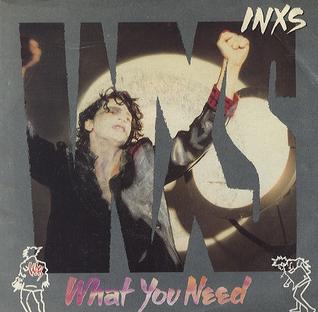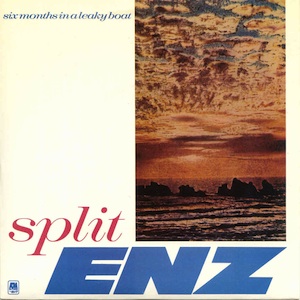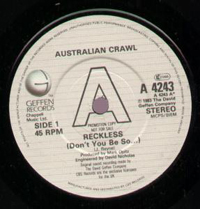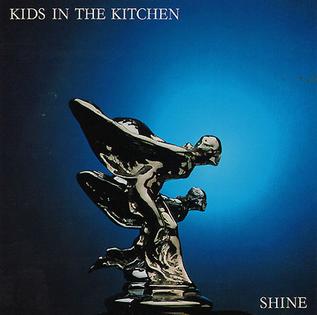I'm Talking are an Australian funk-pop rock band, which featured vocalists Kate Ceberano and Zan Abeyratne. They formed in 1983 in Melbourne and provided top ten hit singles "Trust Me", "Do You Wanna Be?" and "Holy Word" and a top fifteen album, Bear Witness, before disbanding in 1987. The group reunited in October 2018, and went on a 2019 tour as well as a series of small venue shows.

"Computer Games" is a song by New Zealand band Mi-Sex, released in September 1979 in Australia and New Zealand as the second single from their debut studio album, Graffiti Crimes (1979). The song peaked at number 1 in Australia and 5 in New Zealand. The music video was filmed on location at what was at the time Control Data Corporation's North Sydney centre and included gameplay from the 1979 arcade games Speed Freak, Basketball and Star Fire. The single won the award for Best Australian Single at the 1979 TV Week/Countdown Music Awards.

"Nightshift" is a 1985 song by the Commodores and the title track from their album of the same name. The song was written by lead singer Walter Orange in collaboration with Dennis Lambert and Franne Golde as a tribute to soul/R&B singers Jackie Wilson and Marvin Gaye, both of whom died in 1984. The song was released as the album's first single in January 1985 by Motown Records. "Nightshift" was recorded in 1984 and became the Commodores' first hit after Lionel Richie's departure from the group.

"What You Need" is a song recorded by the Australian band INXS. It is the leadoff track from their 1985 album, Listen Like Thieves. "What You Need" was the lead single off the album in Australia and New Zealand, while it was in USA and Europe the second single after "This Time" and was the band's first American Top Ten hit, peaking at #5 on the Billboard Hot 100 singles chart.
Machinations are an Australian synthpop band which formed in 1980. They reached the top 20 on the Kent Music Report albums chart with Big Music in 1985. Their top 30 hits on the related singles chart are "Pressure Sway", "No Say in It", "My Heart's On Fire" and "Do to You". By 1989 the group had disbanded. They briefly reunited in 1997 and then reformed in 2012.

"Who Can It Be Now?" is a song recorded by Australian band Men at Work. It was released in Australia in 1981, prior to the recording of their 1981 debut album Business as Usual, on which the track was later included.

"Heaven (Must Be There)" (sometimes shortened to just "Heaven") is a song by the Australian pop and New Wave band Eurogliders from their album This Island. The song was released on 7" and 12" vinyl in May 1984.

"Original Sin" is a song by Australian rock group INXS, released as the first single from the band's fourth album, The Swing. It was written by Michael Hutchence and Andrew Farriss, and produced by Nile Rodgers.

"Help Is On Its Way" is a song by Australian band Little River Band, released in April 1977 as the lead single from the group's third studio album, Diamantina Cocktail. The song peaked at number one on the Australian Kent Music Report singles chart. The song also peaked at No. 14 on the Billboard Hot 100.

"Catch Me I'm Falling" is a song by Australian new wave and synth-pop band Real Life. Released in December 1983 as the third single from the band's debut studio album Heartland. The song is built on the success of the debut single "Send Me an Angel" and became the band's second top 10 hit in Australia, spending 27 weeks in the Kent Music Report top 100. It also hit no. 40 on the Billboard Hot 100 charts in the United States.

"Six Months in a Leaky Boat" is a song by New Zealand art rock group Split Enz. It was released in May 1982 as the second single from the group's eighth studio album, Time and Tide. The title is a reference to the time it took pioneers to sail to New Zealand, and a metaphor that refers to lead singer Tim Finn's nervous breakdown.

"The One Thing" is a song by Australian rock group INXS, released in July 1982 as the first single ahead of their third studio album, Shabooh Shoobah, which appeared in October that year.

"Reckless" (aka "Reckless (Don't Be So)", "Reckless (Don't You Be So)", "She Don't Like That") is a 1983 song from the EP Semantics by Australian band Australian Crawl. The song showed a change in the line up of the band as drummer Bill McDonough was temporarily replaced by Graham Bidstrup (also on keyboards). After the EP was released, Bidstrup was replaced by John Watson (drums).

"I Send a Message" was the second single released by Australian rock band INXS from their fourth album The Swing. The music video was directed by Yamamoto San and filmed in Tokyo at the city's oldest Buddhist temple in Main Old City Park.

Body and the Beat is the seventh studio album recorded by Australian-New Zealand rock band, Dragon. The album was released in June 1984 and peaked at number 5 on the Australian Kent Music Report. The album was certified gold in the week of release and achieved platinum status in Australia. It was the band's first studio album since Power Play in 1979.
"And We Danced" is a song by the American rock band the Hooters, released as the first single from their second album, Nervous Night. "And We Danced" was released in 1985 and became the band's first major hit, just missing the top 20 on the US Billboard Hot 100, but reaching #3 on the Mainstream Rock chart. It became the band's second consecutive Top 10 hit in Australia, reaching #6.

"Burn for You" is a song by Australian rock band INXS that features on the band's fourth album The Swing. It was the third single to be released from the album and peaked at #3 on the Australian chart in August 1984, remaining there for two weeks.

Shine is the debut studio album by Australian new wave, pop group Kids in the Kitchen. It was released on 20 May 1985 via Mushroom Records. It peaked at No. 9 in Australia and was certified platinum for shipment of 70,000 copies. The line-up for most of its tracks was Scott Carne on lead vocals, Bruce Curnow on drums, Craig Harnath on bass guitar, Claude Carranza on lead guitar and Alistair Coia on keyboards, with the producer Mark S. Berry working on seven of its ten tracks. It provided six singles, "Change in Mood" (1983), "Bitter Desire" (1984), "Something That You Said", "Shine", "Current Stand", and "My Life". The album was re-released internationally in 1986 as Kids in the Kitchen by Sire Records for the European and American markets.
"Goosebumps" is a pop song written by Terry Britten and BA Robertson and originally released by Robertson in January 1979 as the first single from his debut album Initial Success. The single flopped, but later that year, Australian pop singer Christie Allen covered the song, which peaked at number 3 on Kent Music Report in Australia and sold over 60,000 copies
"He's My Number One" is a pop song written by Terry Britten and B. A. Robertson and recorded by Australian pop singer Christie Allen. The song was released in January 1980 as the fourth single from Allen's debut studio album, Magic Rhythm (1979). The song peaked at number 4 on the Kent Music Report in Australia.















